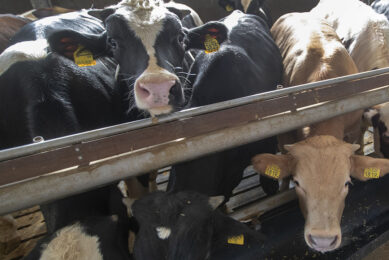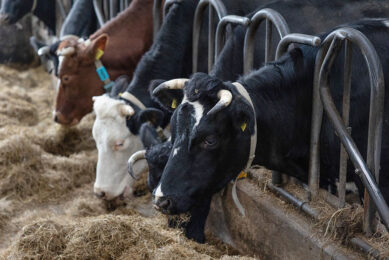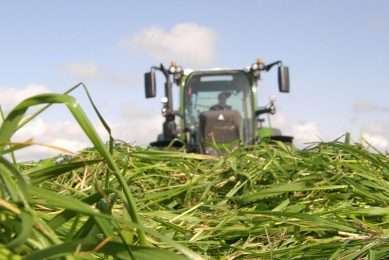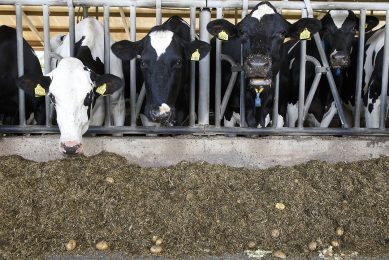New challenges for by-product preservation
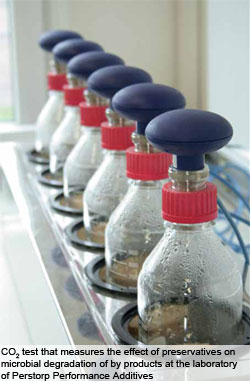
Wet by-products from the bio fuel industry are susceptible to mould, yeast and bacterial growth. Preservation by adding mixtures of organic acids and their salts is therefore essential.
Traditionally by-products from the food and beverage producing companies are utilised as feedstuff for farm animals such as pigs, dairy cows and beef cattle. Examples are spent grains from the breweries, sugar beet pulp from the sugar industry and wheat starch from companies that produce glucose from wheat. In most cases the by-products come out of the production process in a wet form and subsequently distributed to farms by specialised feed companies. Liquid by-products are mainly fed to pigs, because the farms are equipped with liquid feeding systems with specialised storage and piping facilities. Stackable products are mainly fed to dairy cows and cattle. On the farm they may be preserved by ensiling them. The main advantage of keeping the by-products in a high moisture form (20-60% dry matter) is to save out high drying costs. However, the farms must be relatively close ( 300 km) to the factory. If this is not the case, transport costs get too high and drying becomes more interesting. Because wet products are susceptible to mould, yeast and bacterial growth, preservation is critical. In the Netherlands the quantity of these kind of by-products produced yearly is about 5 million tonnes.
Bio ethanol by-products
Over the last years an important product group has been added to this moist feedstuff market: bio ethanol by-products. This is caused by the biofuel developments: stimulated by the European Union and governments the production of bio ethanol and bio diesel has grown rapidly, as a CO2 neutral alternative for fossil fuel. The EU started with the first Biofuel Directive in 2003. This directive set indicative targets to promote the use of renewable fuels by replacing a percentage of gasoline or diesel by biofuels (bio ethanol or bio diesel) in the transport sector. For 2005 the target was set at 2% by energy content and at 5.75% for 2010. In the EU bio ethanol is mainly produced from wheat and to a lesser extent from corn or other cereals. The main wet by-products from the bio ethanol process are: condensed distillers solubles (CDS) and grains (see Figure 1). They may be mixed and dried and then they are called dried distillers grains and solubles (DDGS). However, in regions where pig and dairy farms are relatively close by; it is more economical to use them in a wet form. The products have a high feeding value and contain mainly protein, carbohydrates and minerals.
The safety and integrity of stored by-products of the grain processing industry is of high importance to the food and feed supply. Microbial and mould contamination in particular are related to a loss of dry matter and valuable nutrients. Also, it can cause the formation of mycotoxins which can seriously affect metabolic processes and consequently the performance and health of farm animals.
Tailor made preservation
In some cases the products can be preserved by natural fermentation. In this case, lactobacilli produce lactic acid which causes a drop of the pH so that a microbiological stable product remains. However, in other cases a good preservation can be achieved by adding mixtures of organic acids and their salts. These mixtures also induce a lowering of the pH and in addition they have specific antimould, antiyeast and antibacterial properties leading to a stable product. Each different by-product has its own specific properties that require tailor-made mixtures to add for preservation. Perstorp has developed a test procedure in which the products can be tested for their ability to stop mould growth. This method is based on the production of CO2 by micro organisms which grow in the by-products. Several tests have been carried out over the years, which resulted in a specific knowledge of the preservation of all kinds of by-products.




